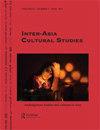Social reproduction and the division of labour
IF 0.4
4区 社会学
Q4 ANTHROPOLOGY
引用次数: 1
Abstract
ABSTRACT Analysis of social reproduction and the division of labour in recent years has (again) attracted attention. In this paper, examples from India and Vietnam are considered to show how the roles of women and those considered “unproductive” in present-day capitalist societies are in fact essential to sustaining capitalist production. Through readings of Marx and Marxist-feminist analysis, this article will show why there is division among workers in factories along lines of gender, within the family, and among family generations. This paper also contributes to the analysis of social reproduction worldwide by offering some criticisms of Indian and Vietnamese authors on topics such as childcare (Anganwadi) and others. Notwithstanding a long tradition, reaching back to Marx’s own commentaries, which are followed closely in the second half of this paper, social reproduction studies have been innovative because they displace stereotypes that reinforce a limiting conception of women and others as being of lesser importance for capitalist production. In this way, a clear focus on what Marx had to say, and how it can be developed in new contexts, is the means of clarifying an analysis of social structures and social development.社会再生产与劳动分工
社会再生产与劳动分工的分析近年来(再次)引起了人们的关注。在本文中,从印度和越南的例子被认为是显示如何妇女的角色和那些被认为是“非生产性”在当今资本主义社会实际上是维持资本主义生产必不可少的。通过阅读马克思和马克思主义女权主义的分析,这篇文章将说明为什么工厂里的工人会有性别、家庭内部和家庭世代之间的分裂。本文还通过对印度和越南作者在儿童保育(Anganwadi)等主题上的一些批评,有助于分析世界范围内的社会再生产。尽管有一个悠久的传统,可以追溯到马克思自己的评论,这篇文章的后半部分紧随其后,社会再生产研究一直是创新的,因为它们取代了刻板印象,强化了女性和其他人对资本主义生产的重要性较低的限制概念。通过这种方式,明确地关注马克思所说的,以及如何在新的背景下发展它,是澄清社会结构和社会发展分析的手段。
本文章由计算机程序翻译,如有差异,请以英文原文为准。
求助全文
约1分钟内获得全文
求助全文
来源期刊

Inter-Asia Cultural Studies
Multiple-
CiteScore
0.90
自引率
20.00%
发文量
22
期刊介绍:
The cultural question is among the most important yet difficult subjects facing inter-Asia today. Throughout the 20th century, worldwide competition over capital, colonial history, and the Cold War has jeopardized interactions among cultures. Globalization of technology, regionalization of economy and the end of the Cold War have opened up a unique opportunity for cultural exchanges to take place. In response to global cultural changes, cultural studies has emerged internationally as an energetic field of scholarship. Inter-Asia Cultural Studies gives a long overdue voice, throughout the global intellectual community, to those concerned with inter-Asia processes.
 求助内容:
求助内容: 应助结果提醒方式:
应助结果提醒方式:


